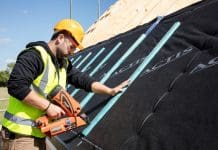Despite the rules in place for landlords, new research claims gas safety is a ‘postcode lottery’ for the UK’s five million privately rented properties. And it’s not just property owners who are in the firing line…
It has been suggested that more than one in five small business energy users don’t know that failing to have an annual gas safety check could invalidate their insurance.
Gas safety is a serious issue, and it’s about more than just ticking boxes. Poorly fitted and maintained gas appliances can cause fuel leaks, fires and even explosions, as well as carbon monoxide poisoning. As a result, landlords who fail to comply with gas safety regulations can face tens of thousands of pounds in fines.
With so many properties – and lives – at stake, are the UK’s gas safety rules simply too lax? And how can landlords make sure their premises stay safe?
Gas safety – are we doing enough?
At the moment, the gas safety regulations impacting on landlords differ from place to place. Under the Landlord Licence Scheme, landlords must prove they’ve met the legal requirement for an annual gas safety check in all their properties before they can let them out. However, just 40 local authorities across the country currently operate a Landlord Licence Scheme in their area.
This discrepancy has created a ‘postcode lottery’ when it comes to gas safety. Yes, most landlords are well aware of what’s required to keep their properties and their tenants safe – but there are still many premises at the mercy of negligent landlords who are carrying out suspect DIY heating repairs or skipping annual checks altogether. What’s more, with 7,500 unregistered gas fitters responsible for 250,000 illegal gas jobs in the UK every year, rogue traders are still very much a problem nationwide.
As well as the limitations of the current rules and regulations, there’s also a lack of awareness amongst energy users to contend with. For example, a shocking number of small businesses that are using mains gas are failing to stay on top of gas safety in the workplace. In fact, a recent survey found that 23% had no idea that their gas appliances need to be checked on an annual basis – and a worrying 18% haven’t had a visit from a Gas Safe Engineer in the last year.
What gas safety regulations mean for landlords
With so many factors at play, the landlord’s role in keeping properties gas safe is crucial. So, how can landlords ensure their premises are fit for purpose – and keep energy users in the loop? Business gas supplier Flogas Energy gives a rundown of the steps to take.
Keep all gas appliances and systems properly maintained
This means always using a Gas Safe registered engineer to service your boiler and any other gas appliances, and to maintain any gas pipework and chimneys or flues. The manufacturer’s instructions should outline how often appliances should be serviced, but if these are not available then the Gas Safe Register recommends servicing once a year. Appliances owned by tenants don’t fall within this remit, and neither do flues that connect only to tenants’ appliance.
Carry out an annual gas safety check
You must arrange for a full gas safety check once a year – this is carried out by a Gas Safe registered engineer and covers all gas appliances and flues. Again, you don’t need to organise checks for any of your tenants’ own appliances (or flues that connect only to appliances owned by the tenant).
Keep a record of all checks (and provide copies)
All gas safety checks carried out in your property must be recorded on a Landlord Gas Safety form. As well as keeping a copy for yourself (for at least two years, or until a further two checks have been carried out), you must provide your tenants with their own copy within 28 days. For new tenants, it’s at the start of the tenancy, and for any rental periods shorter than 28 days, simply display the record in a prominent place in the property.
What’s new in 2018?
As of April this year, new regulations have been introduced that allow landlords to arrange their annual gas safety check up to two months in advance without impacting on the expiry date of the existing certificate. You can now arrange a new check any time within 10-12 months of the last one – and when the old certificate runs out, the new one will simply run for the next year.
If for any reason you need to carry out a gas safety check less than 10 months (or more than 12 months) after the last one, the expiry date will be a year from when your new certificate is issued. It’s worth noting that landlords who make use of the new rules must keep their gas safety records until two further gas safety checks have been carried out.
This new ‘MOT-style’ approach allows landlords to arrange a new check in plenty of time before the old one expires (without shortening its lifespan) – instead of rushing to book a visit from a Gas Safe engineer just before the deadline. It also makes it easier to keep track of renewal dates, as these stay the same each year.
Because of this, the new 2018 rules have been welcomed by landlords. They’re a way to uphold the very highest gas safety standards – whilst making the checks process more flexible and straightforward all round.
To find your local Gas Safe registered engineer, visit: www.gassaferegister.co.uk














